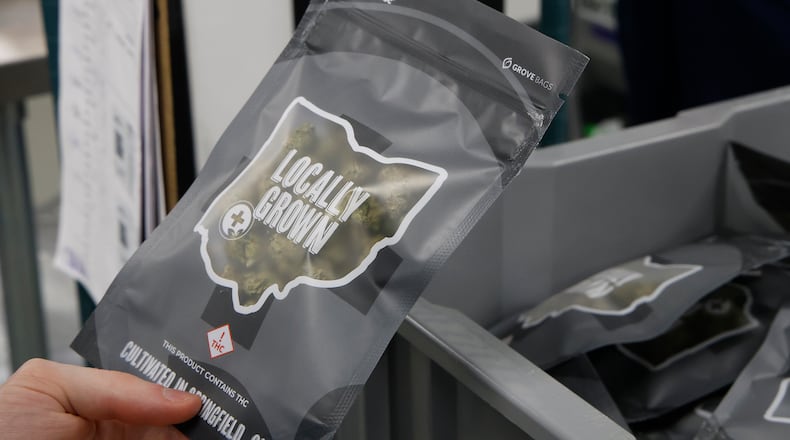But as of this week, adults still have nowhere to legally buy cannabis.
Division of Cannabis Control (DCC) spokesperson Jamie Crawford said the new division under the Ohio Department of Commerce aims to get adult Ohioans to a place where they can legally purchase non-medical cannabis that has been tested before it hits shelves.
Medical marijuana dispensaries will be the first entities eligible to hold licensing for recreational sales. There are roughly 20 dispensaries in Montgomery, Greene, Butler, Warren, Clark and Miami counties.
Division officials say there isn’t a day selected as the first day of recreational sale, but applications will be reviewed roughly in the order they are received.
Current medical permit holders who are looking to apply for dual licensing have already gone through many state-overseen steps needed to sell cannabis. These dispensaries are anticipated to have a quicker turnaround for issuance over the summer, said Crawford.
“We will start issuing licenses and it will be up to the retailer based on staffing, stock and other considerations as to which day they will begin sales,” Crawford said.
Dual license application turnaround will in part depend on the application being filled out correctly and inspection requirements being met.
It will also be important for medical marijuana dispensaries to ensure their sales are distinguished between medical and non-medical products at check-out, Crawford said.
Recreational sale will also depend on the city where medical marijuana dispensaries call home. According to Ohio State University’s Drug Enforcement and Policy Center, more than 50 localities have passed moratoriums barring or limited recreational sale within their borders.
Kettering, Vandalia, Miamisburg, Centerville, Springboro, Carlisle, Monroe, Xenia, Franklin, Waynesville, Tipp City and other cities throughout the region have all passed moratoriums.
If a dispensary license is issued by DCC for a town that does not have a moratorium in place, the locality has 120 days to enact an ordinance prohibiting the operations of the dispensary. If an ordinance is passed, the dispensary has 60 days to cease operations, or begin the process of initiating a petition to operate that would have to be voted on at the next general election, according to the Drug Enforcement and Policy Center.
The Dayton Daily News last month reported that area dispensaries that aren’t located in a city that has a moratorium against recreational sale were gearing up to apply for dual licensing and expecting a surge in demand.
Dispensaries will need to take a few steps after submitting their applications for dual licensing, said Adam Goers, the senior vice president of corporate affairs for The Cannabist Company, which owns the Columbia Care dispensary in Dayton.
Extra training will be necessary to brush up dispensary employees on rules surrounding state-issued ID cards and how to help customers find products they want, for instance.
Goers said when dispensaries roll out recreational sales for the first time, customers should keep in mind that the first few days will be busy.
“On the first day or two you might see a short line or a slight delay in getting your adult use cannabis, and maybe one or two of the products that you wanted may be out of stock for a few days. We will quickly adjust and it’ll be back to business as usual,” Goers said.
About the Author

